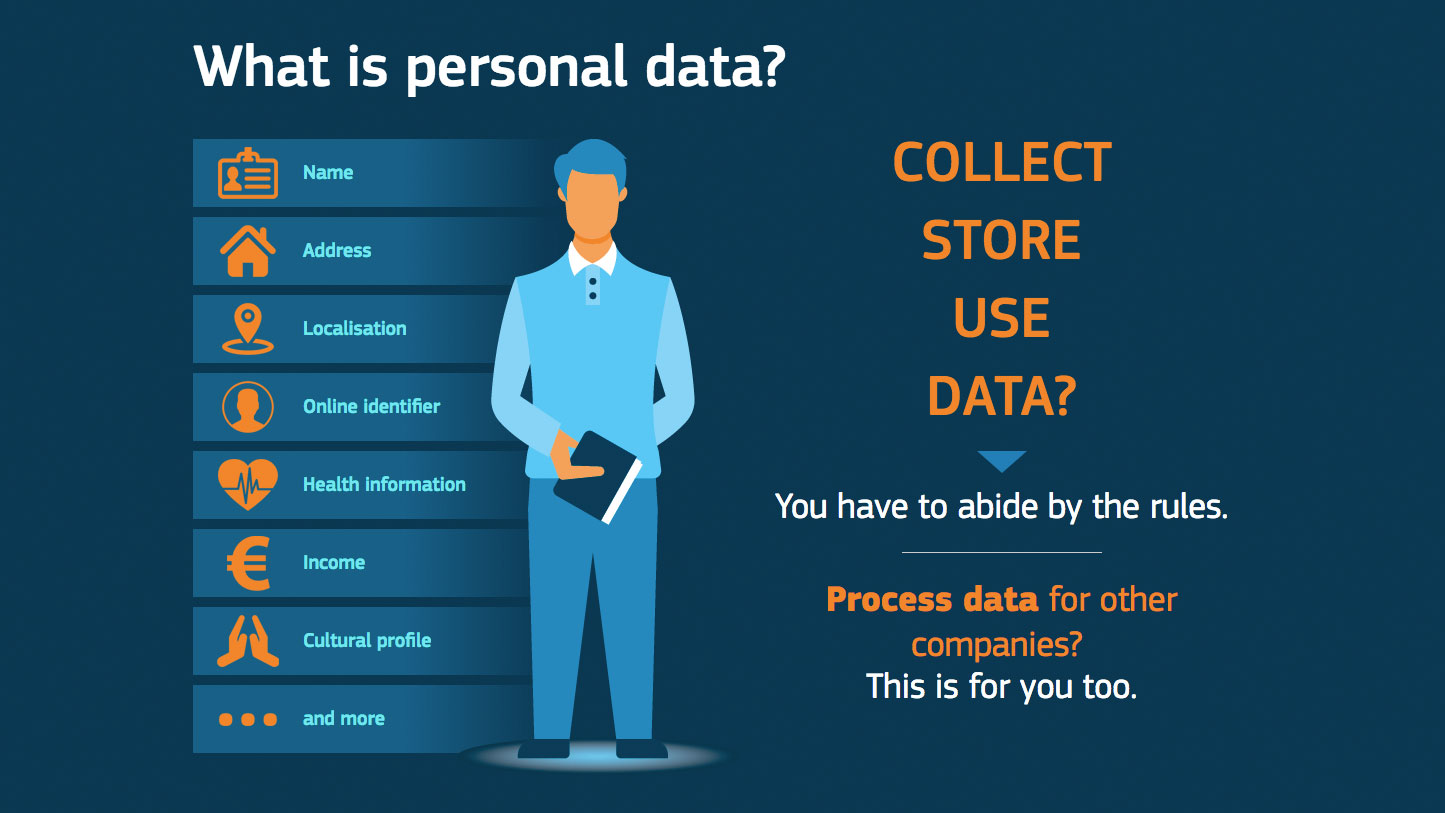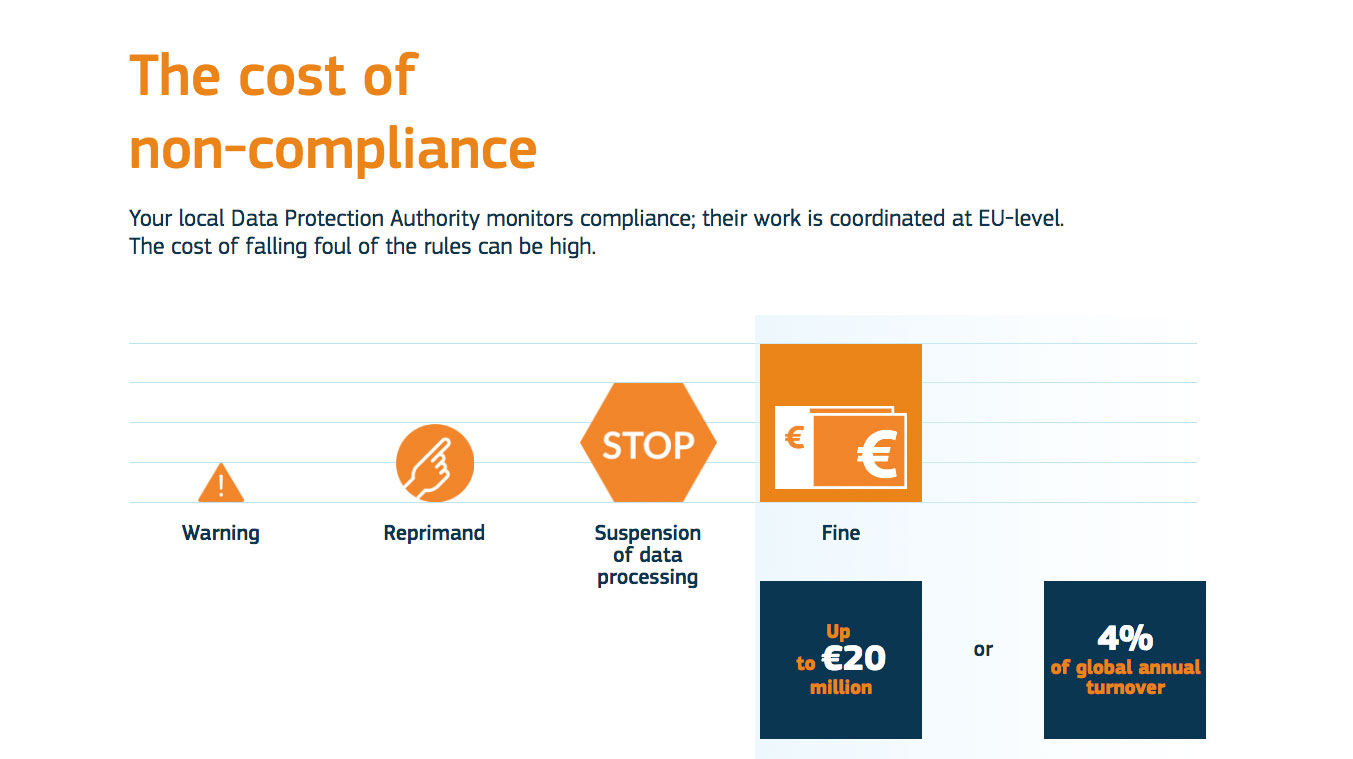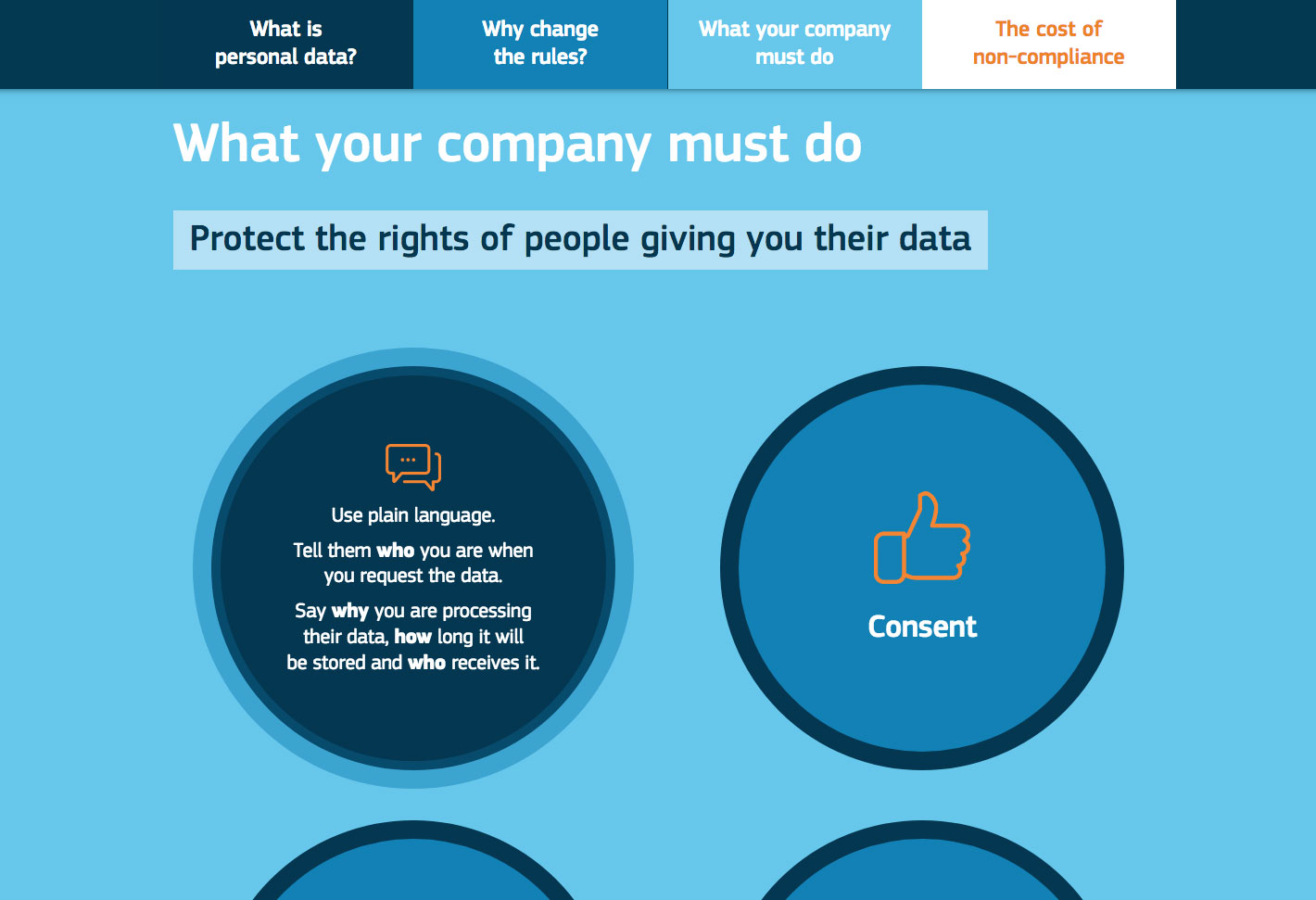Face your GDPR fears with this enlightening infographic
Ready for GDPR? Don't worry, you're not alone.

The new General Data Protection Regulation – or GDPR – laws come into effect across the EU on Friday 25 May, and it's almost impossible to ignore them, especially if your inbox is filling up with increasingly desperate emails begging you to review privacy policies, or to give companies you can't even remember ever buying anything from permission to stay in touch with you.
GDPR's a bit of an annoyance if you're an ordinary individual, but it'll at least mean more control over the data that companies hold on you. If you're running a business, though, even if it's just a small operation, you need to be GDPR-compliant. And in the face of complex and seemingly draconian rules, and the possibility of huge fines if you're doing it wrong, you might – quite reasonably – be terrified by the prospect of dealing with it.
However, there's no need to be quite so scared. Even if you haven't quite got around to dealing with GDPR yet, don't worry: you're not going to get slapped with a fine tomorrow morning. There are loads of companies all across the EU, not all of which have got their GDPR ducks in a row, so you're in good company if you're not ready yet, and the worst thing you can expect in the short term is a warning, and realistically you'd have to repeatedly ignore several warnings (see below) before you run the risk of an actual fine.

So if you want to sleep better tonight, you'll need some easy-to-digest information about GDPR and what you need to do about it. Thankfully the European Commission has produced just the guide you want, in the form of one of the best infographics we've seen for a while (original here).
From the basics of what personal data actually is and the reason for the change in the rules, through to practical tips on what your company should do to comply with GDPR and whether you need a data protection officer, this infographic neatly summarises most of what you need to know about GDPR and, with a bit of luck, should soothe any fears that you might have about it.

Need to know more? You'll find more in-depth information about GDPR over at the European Commission site.
Related articles:
Daily design news, reviews, how-tos and more, as picked by the editors.

Jim McCauley is a writer, performer and cat-wrangler who started writing professionally way back in 1995 on PC Format magazine, and has been covering technology-related subjects ever since, whether it's hardware, software or videogames. A chance call in 2005 led to Jim taking charge of Computer Arts' website and developing an interest in the world of graphic design, and eventually led to a move over to the freshly-launched Creative Bloq in 2012. Jim now works as a freelance writer for sites including Creative Bloq, T3 and PetsRadar, specialising in design, technology, wellness and cats, while doing the occasional pantomime and street performance in Bath and designing posters for a local drama group on the side.
